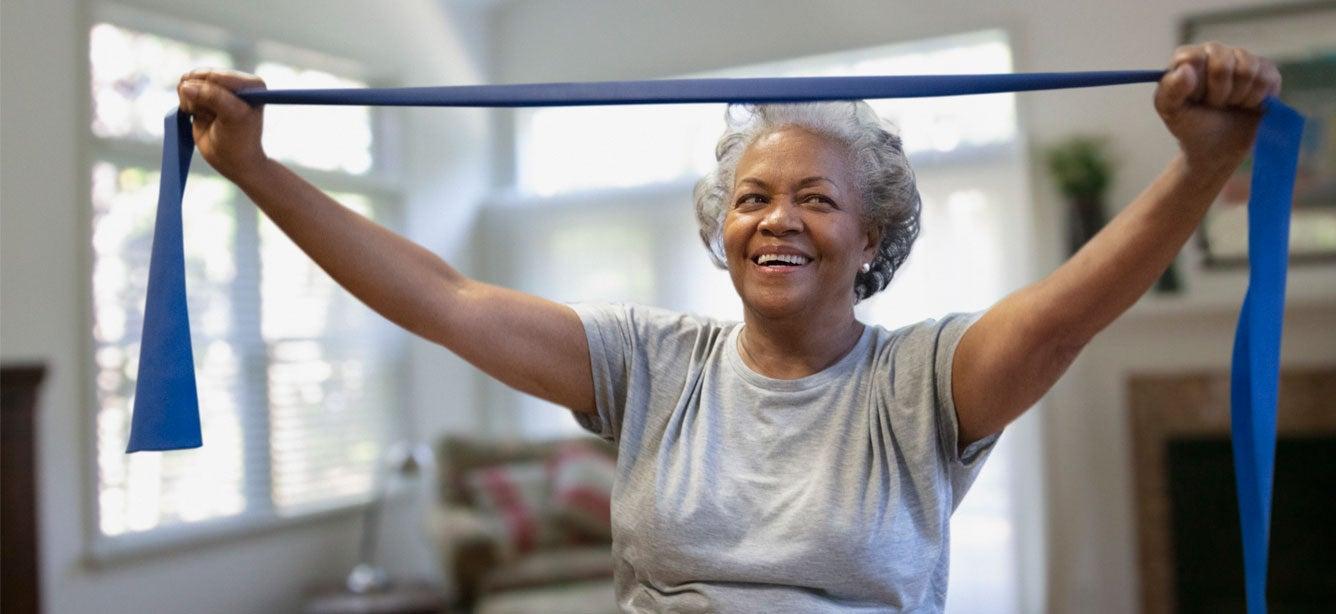CDSME Participants vs. Completers: How Are They Tracked?
10 min read

The Healthy Aging Programs Integrated Database, or HAPID®, is built on the Salesforce platform, and tracks data from host organizations, implementation sites, and participants for over 50 evidence-based programs in the areas of chronic disease, falls prevention, mental health, physical activity, and more. Most are small group (10-15 individuals), workshop-based programs offered in locations such as senior centers, area agencies on aging, churches, libraries, hospitals, other community-based settings, and even online. Some programs are one-on-one (e.g., HomeMeds, PEARLS) or self-directed (e.g. Tool Kit for Active Living with Chronic Conditions). For ACL grantees, there are specific requirements for tracking "participants" and "completers" in each of these programs.
Definitions
- Participant: An individual who attends at least one session of an evidence-based program. Labeled "participants enrolled" in the database.
- Completer: A participant in a group program who completes the recommended intervention dose, often set by the program developer. When the program developer has not issued a specific recommended dosage (or minimum required sessions), ACL and NCOA use 2/3 of the total possible sessions as the default definition of a completer. For example: A participant is considered a completer if they attends 4 or more sessions out of 6 in a six-week program, excluding any Session Zero classes.
- Chronic Disease Self-Management Education Program (CDSME): For the purpose of the ACL CDSME grant, an umbrella term that refers to community-based education programs specifically designed to enhance patient self-management of chronic illnesses, as well as focus on building multiple health behaviors and generalizable skills such as goal setting, decision making, problem-solving, and self-monitoring. CDSME programs are proven to maintain or improve health outcomes of older adults with chronic conditions. Refer to the funding announcement for your grant for a list of programs that qualify as CDSME programs.
- Self-Management Support Program: The ACL CDSME funding announcements allow applicants to offer a "self-management support program," defined as a community-based, behavioral change intervention that is proven to increase one or more skills or behaviors relevant to chronic disease self-management such as physical activity and medication management. Support programs include Walk With Ease, HomeMeds, Healthy IDEAS, Arthritis Foundation Exercise Program, and many others. Support programs can also refer to programs that fall outside the typical six session format, such as the Toolkits for Active Living with Chronic Conditions, and those that involve a single encounter.
- Session Zero: Session Zero is an optional information session offered prior to the first official program class. Generally, session zero includes an overview of the program and expectations for participation. Additionally, administrative paperwork is often collected at this time. A session zero does not count toward participant or completer numbers.
While program developers may have their recommended number of sessions, or dosage, that participants need to meet to be considered a ‘completer,’ it is ultimately up to ACL to determine whether ‘participants enrolled’ or ‘completers’ will count toward the grantee’s goals. When grantees are offering a number of programs, they may find that for some programs, participants are counted, while for other programs, only completers will count toward their total target goals. The Healthy Aging Programs Integrated Database allows grantees to document both data points – enrolled participants and completers.
Grant Requirements & Data Entry
Chronic Disease Self-Management Education Programs: ACL CDSME Grantees are expected to set goals to reach a specific number of participants and completers. Both participants and completers are tracked for the following programs in HAPID. Completion is based on the definition above.
| Program |
Total Number of Sessions/ Number of Sessions Required for Completion |
| Better Choices, Better Health Online | 6/4 |
| Cancer: Thriving and Surviving* | 6/4 |
| Chronic Disease Self-Management Program* | 6/4 |
| Chronic Pain Self-Management Program* | 6/4 |
| Diabetes Self-Management Program* | 6/4 |
| Health Coaches for Hypertension Control | 8/5 |
| Living Well in the Community | 10/6 |
| Mind Over Matter | 3/3 |
| Positive Self-Management Program* | 6/4 |
| Tomando Control de su Salud* | 6/4 |
| Programa de Manejo Personal de la Diabetes* | 6/4 |
| ¡Sí, Yo Puedo Controlara Mi Diabetes! | 4/3 |
|
Toolkit for Active Living with Chronic Conditions (If offered with weekly 1/2 hour, group phone sessions with instructor) | 6/4 |
|
Toolkit for Active Living with Diabetes (If offered with weekly 1/2 hour, group phone sessions with instructor) | 6/4 |
|
Toolkit for Active Living with Chronic Pain (If offered with weekly 1/2 hour, group phone sessions with instructor) | 6/4 |
| Wellness Recovery Action Plan | 8/5 |
| Workplace Chronic Disease Self-Management Program* | 12/8 |
* The completer requirement is the same regardless of whether the Self-Management Resource Center program is implemented in-person, by video-conference (e.g. Zoom), or by phone.
Self-Management Support Program: ACL CDSME Grantees are expected to set goals to reach a specific number of participants only for self-management support programs. Where possible, organizations can elect to track completion rates for support programs for quality assurance purposes.
| Program |
Total Number of Sessions/ Number of Sessions Required for Completion |
| Active Living Every Day | 12/8 |
| Arthritis Foundation Exercise Program | 12/8 or ongoing |
| Eat Smart, Move More, Weigh Less | 15/10 |
| EnhanceFitness | Ongoing; 22 sessions in the first 4 months to count as completer |
| EnhanceWellness |
6-10 (Dependent on participant needs) (Must record at least one "encounter" in the database) |
| Fit & Strong! | 24/16 |
| Geri-Fit Strength Training Workout for Older Adult | 24/16 or Ongoing |
| Healthy IDEAS |
1-8 (Dependent on clinical and participant needs) (Must record at least 2 "encounters" in the database. One for when the case was opened, and one for when the case was closed) |
| HomeMeds |
Varies based on follow-up as needed with pharmacist, provider, or client (Must record at least one "encounter" in the database) |
| PEARLS |
6-10 (Dependent on participant needs) (Must record at least one "encounter" in the database) |
| Screening, Brief Intervention, and Referral to Treatment |
Varies (Must record at least one "encounter" in the database) |
| Walk With Ease (in-person) | 18/12 |
| Walk With Ease/Camine Con Gusto (Self-Directed) |
1/1 Self-directed walks and workbook lessons (Must record at least one "encounter" in the database) |
| Walk With Ease (Self-Directed/Enhanced) | 18/6 |
| Tool kits (for Chronic Conditions, Chronic Pain, or Diabetes) - when issued on its own (with no phone support or virtual program) |
1/1 (Must record at least one "encounter" in the database) |
This project was supported, in part by grant number 90CSSG0048 from the U.S. Administration for Community Living, Department of Health and Human Services, Washington, D.C. 20201. Grantees undertaking projects under government sponsorship are encouraged to express freely their findings and conclusions. Points of view or opinions do not, therefore, necessarily represent official Administration for Community Living policy.


